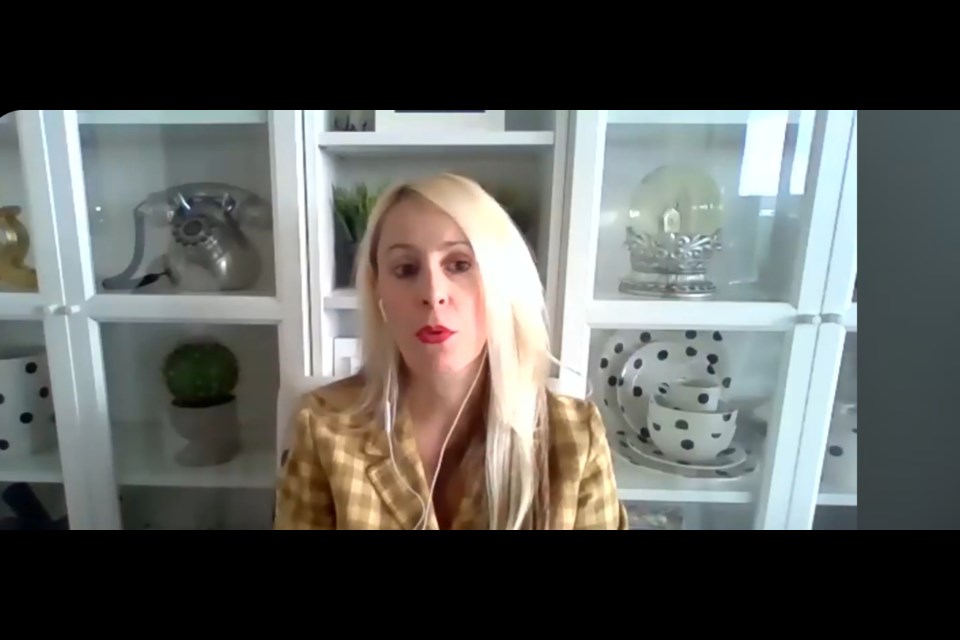An online town hall meeting was held Thursday to help shine a light on the state of Ontario's long-term care facilities in Ontario, particularly Roberta Place in south-end Barrie, where 50 residents have succumbed to COVID-19.
The Make the Call Town Hall was hosted by a group called Voices of Long Term Care. The group consists of families with loved ones in long-term care facilities who have had enough of what they call a “systemic neglect witnessed in homes across the province.”
Maureen McDermott, founder of Voices of Long Term Care, said there were more than 1,000 signatures on a petition for change to the way long-term care facilities are run.
“We have a movement happening here. We have a serious humanitarian crisis in this province and it has gone way beyond politics and is a non-partisan issue,” McDermott said. “It really is a humanitarian crisis.”
Jeremy Taggart’s mother, who lives at Roberta Place, has tested positive for the virus. He wants answers about how things have been handled.
“The outbreak started on Jan. 8 and the Red Cross didn’t come until the 16th,” he said. “All that time, it was just the staff dealing with the problem and therein lies the problem. We have people dealing with a crisis like this and shouldn’t be expected to have to since they are not prepared for it.”
Taggart says he would've liked to have seen a task force struck immediately.
Dr. Vivian Stamatopoulos, a professor at Ontario Tech University, agrees.
“That help should have been already organized with the neighbouring hospitals, but not even them because they are overrun as well,” she said. “We needed Red Cross teams deployed at the start of the outbreak, in addition to the medical military teams.”
A Ministry of Long-Term Care inspection at the Essa Road facility, which was conducted Jan. 12 and 13, shows the long-term care home had not followed protocol expected by the province.
The report stated the licensee — Barrie Long Term Care Centre Inc., c/o Jarlette Health Services — had "failed to ensure that the home was a safe and secure environment for its residents.”
Palliative care physician Dr. Amit Arya has been following the Roberta Place outbreak closely and pointed out how, in any other field, there would have been quicker reaction to the crisis.
“These homes have had major staffing shortages and have maintained their shareholders’ dividends, even in a pandemic, which is absolutely outrageous,” said Arya. “We would never ever allow this to happen in a child-care centre. There are strict regulations about staffing ratios (in child-care facilities).”
Requests being made by the Voices of Long Term Care group include sending more staff help at homes where it is needed. The group wants what they call a Quebec-inspired staff recruitment with paid training, as well as decent wages and full-time positions post-training.
They also want inspections that result in consequences. The management/operators of homes must be held accountable for any poor practices, they say.
They've also called for the phasing out of for-profit long-term care homes by granting all new licenses to municipal or not-for-profit operators, with a goal of eventually eliminating for-profits altogether.
Stamatopoulos says the problems being seen today date back several years.
“I think the pivotal change came when (former Ontario premier) Mike Harris effectively privatized out the majority of long-term care in Ontario in the mid-'90s,” she said. “Before that, they were better staffed, predominantly by nursing staff. Over the last 20 years, when the for-profit model really gained dominance in Ontario, that's when we started to see an overhaul in the system.”
The group also wants to see the immediate passing of Bill 203, the More Than A Visitor Act. This bill would ensure family caregivers are, by law, integral to the resident’s care team and cannot, under any circumstances, be stripped of meaningful access to their loved one.
Immediately following the town hall meeting, there was a social media protest featuring photos of long-term care residents and anyone affected/concerned by the conditions in the province's facilities. The photos, with the hash tag #MakeTheCall, will ask the provincial government to get the Canadian Forces back into the hardest-hit homes.



